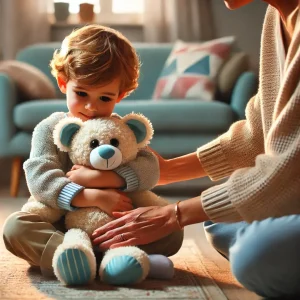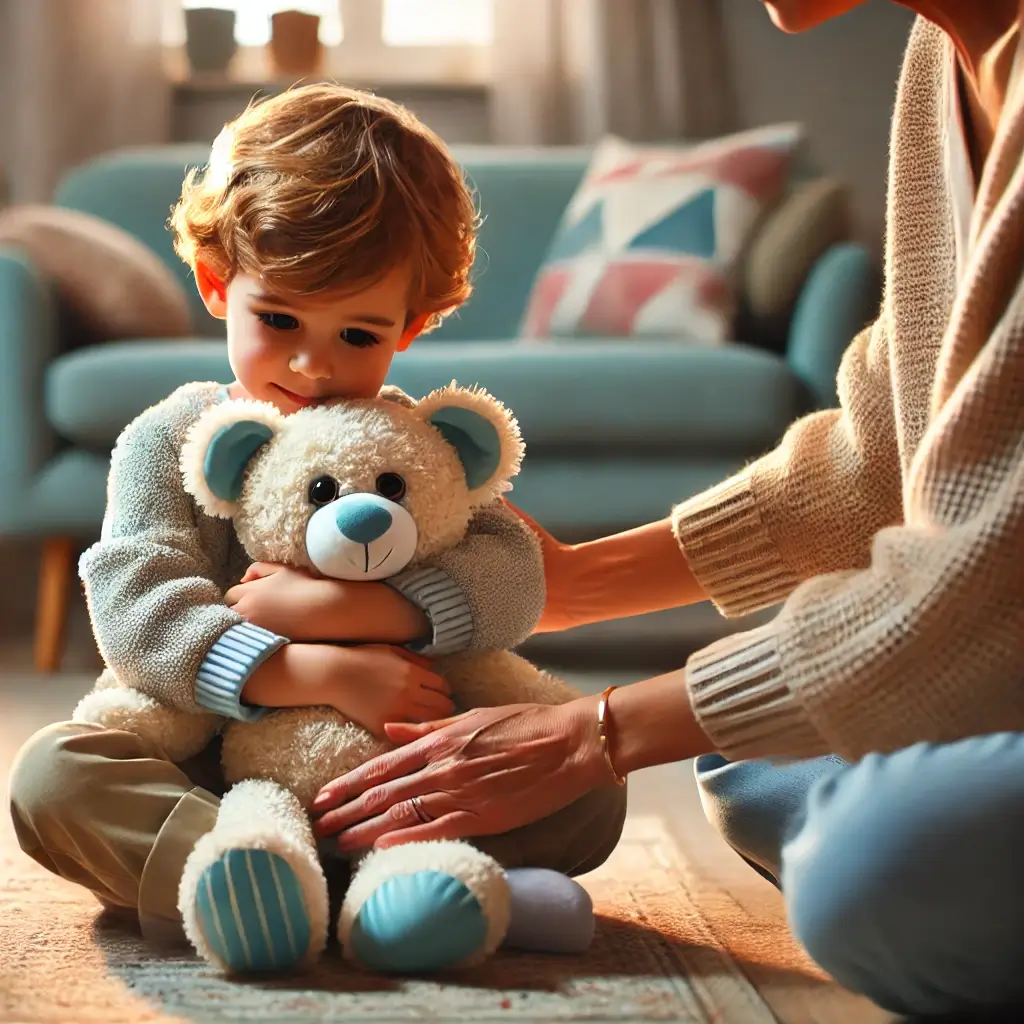
Separation anxiety is a common challenge, affecting both adults and kids alike. While separation is a natural part of life that we all must accept, it can be particularly tough for young children.
Kids grow up quickly, transforming from infants to toddlers in what seems like the blink of an eye. As a mother, one of the hardest tasks is allowing your children the space to learn, grow, and become independent.
However, this necessary separation can sometimes cause anxiety in kids, making them feel tense. Separation anxiety often emerges between the ages of 6 months and 3 years.
When parents step away, children may become anxious, unable to grasp that the separation is only temporary.
How Do You Know that Your Kids Have Separation Anxiety?
Being a mother, it’s hard to see your child go through any kind of anxiety at this young age. So you need to be more protective, careful, and well aware-of this situation.
If you are a new parent or older, it does not matter; you can always be aware and alert about this thing. In the following, I discuss some of the signs that help you identify if your child is going through separation anxiety.
- At the age of 6 months to 3 years, the child becomes more clingy.
- Crying a lot when put into any new situation.
- Refuse to go to sleep alone
- Wake up at midnight and started to cry without any reason.
- Don’t settle easily, and always want their parent’s presence.
If you are ever stuck in this situation, don’t feel guilty; rather, spend time with your kids and treat them with love and compassion.
Tips for Reducing Separation Anxiety
Separation anxiety is a natural process. As a parent, you need to understand the needs of your child, but if you still don’t understand what to do, here are some tips that will help you reduce separation anxiety in your kids.
Rehearse Short Separation
If you think about how to start, then I suggest starting to rehearse short-term separations. Because if you are starting to separate your child for a longer period from the very beginning, they can have anxieties.
So to avoid this situation, you need to start with short separations. For instance, you can leave your kids with your relatives or trusted friends.
That’s how you can see how your child reacts. This method helps the child to slowly get used to separation and, in the future, not feel any kind of anxiety.
Leave their Favourite Plushies to Comfort them
Toys are very close subject to any kid. They spend most of the time with their favourite stuffed toy. Not only do they just play with them, but they also get emotionally attached to such stuffed toys. So when you practice short separation, try to give them their favourite stuffed toys. So they can feel calm and comfortable.
Stuffed toys or plushies help the children to soothe. This way, you can give them a companion during their alone time.
Toys decrease the anxiety of separation. It helps the children have a good time with their stuff buddies. They make their own illusional world with them. This way, they do not feel the pain of separation.
Optimistic Goodbyes
Goodbyes are hard for both parents and children. You can make it optimistic, so the children do not feel anxious. When you are saying goodbye to you do it positively, wearing a smile.
Tell your kids that they will see you soon. If you maintain this practice, then slowly your child will get used to it. They feel assured that you will not leave them for long and will come back soon.
Discuss What You Will Do Together
Another thing you can do to reduce anxiety in your kids is to discuss with them what you and your kids want to do together. So they don’t feel the fear that you will leave them forever.
This way, they feel relaxed and wait for you more positively. Remember, your kid’s top priority is you, so give them enough time so they drown in anxiety.
Help them Get Independent
Separation has its own consequences. It makes the child to be independent. Give them space so they can play and grow independently while you just supervise them.
This is how they can fall asleep on their own. Motivate your kids to try new sports, volunteer, and join clubs. They are faced with a new world ahead of them.
Encourage Them
Children are simple and innocent. They do not want many things. At this age, they just want their parents to be close to them always. So in this process, they only worry about the separation from their parents.
So as a parent, you need to motivate them for separation. Make it positive and give them time and space so they can overcome their anxiety.
Consistency is the Main Key
The main key to reducing separation anxiety is consistency. You need to maintain it on a daily basis.
If you daily leave them for a particular time, they get used to it. And slowly they understand that this is the time to say goodbye, and you will come back after a while. They do not get hyper and get used to it.
Slow Down the Process
Whether you like it or not, your child does not get used to the separation process in one day.
They are also human beings, need each child needs their own time to accept it. Sometimes it happens quickly, or it takes longer than expected. This process varies from child to child, but you need to trust the process and don’t just give up.
Make a Bedtime Routine
A bedtime routine helps reduce separation anxiety among children.
They are dependent on their parent for everything. So if you make a proper routine before bed, they will start to follow it regularly. In the beginning, it was hard for them, but day by day, they got used to it.
They understand that they sleep alone at night, but their parents are close by. So whenever they need them, they are there for them.
It’s never too late to start anything, If you are struggling because of your kid’s separation anxiety, then start to follow these above steps from today onwards.

